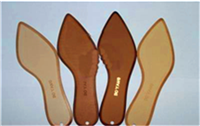Guangdong Yuanlin New Materials Co., Ltd
Contact person: Mr. Gu
Mobile phone:13826960299
Contact person: Li Yongfeng
Mobile phone:18128036097
Telephone:0769-88319157
Fax:0769-88319159
E-mail:gogothomas421@gmail.com
Address:No. 10, Shangye Road, Changping Village, Daojiao Town, Dongguan City
Kaolin, also known as porcelain clay or white clay, is famous for its discovery in Gaoling Village in the northern area of Jingdezhen, and is one of the most commonly used clay raw materials. Kaolin is an aggregate of water containing silicoaluminates composed of various minerals. The key mineral component is Kaolinite, which can also include residues such as quartz, green earth, Illite and marble.
Pure kaolin has a soft texture, a sense of smoothness, and low strength; The relative density is 2.4-2.6g/cm3; The fire resistance reaches 1700-1790 ℃; Has excellent organic chemical reliability and insulation performance. The snow whiteness of pure kaolin or calcined natural color can reach 80% -90%. Kaolin has unique organic chemical characteristics and usage properties such as dispersion, plasticity, fusion, calcination, selectivity, and adsorption, and its main uses are very common. Its scope of application is for ceramic molds, daily porcelain, Tang porcelain, and fire-resistant insulation materials, and can also be used as fillers in fields such as building coatings, plastics and vulcanized rubber, pharmaceuticals, papermaking industry, and national defense and safety.
Kaolin is widely used as a mineral filler, but due to the differences in the production standards and mining and processing methods of kaolin minerals, there are significant differences in their surface characteristics, which limits the scope of application of kaolin. The main uses are different, and the quality regulations vary greatly.
